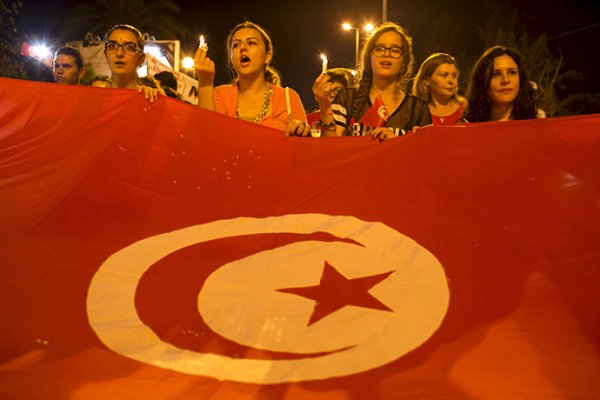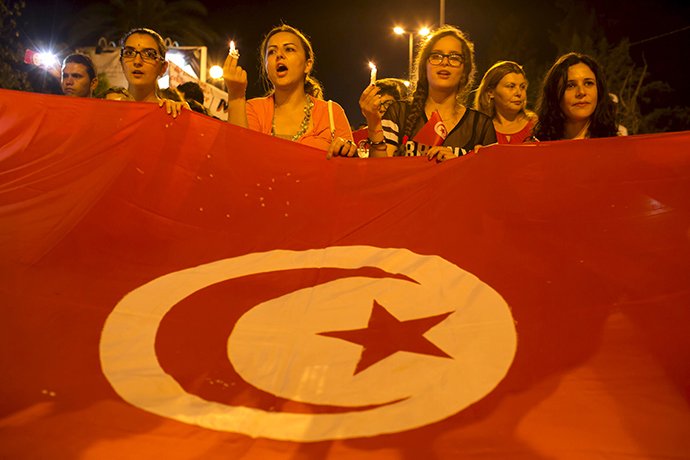A march has been held in the Tunisian resort town of Sousse to denounce the attack in which at least 38 people – mostly tourists – were killed by a gunman on a nearby beach on June 26.
The crowds gathered late on June 27 at a hotel also targeted by the attacker.
They marched through the town expressing sympathy with relatives of the victims, 15 of whom were British.
Tunisia’s PM Habib Essid announced a security clampdown after the attack claimed by Islamic State (ISIS).
Habib Essid said army reservists would be deployed to tourist sites. About 80 mosques accused of inciting violence would be closed within a week.
Friday’s attack was the deadliest in Tunisia’s recent history.
In March, militants killed 22 people, mainly foreigners, at the Bardo museum in the capital Tunis.
The demonstrators marched after dark on the streets of Sousse, with many holding candles to mourn the victims of Friday’s attack.
“Sousse will never die!” the crowds chanted.
A separate rally was held in Tunis.
One Belgian and one German have so far been identified among the dead, the Tunisian health ministry said. One citizen of the Irish Republic is also confirmed dead. There were also thought to be Tunisians killed in the attack.
At least 36 people were injured, some seriously.
Many of the tourists in hotels targeted in the attack have left the country or are waiting for specially arranged flights, but correspondents noted a few were back by the hotel pool on Saturday, vowing they would continue their holidays as scheduled.
Tunisia’s economy relies on tourism, and there are fears that the recent attacks will deal a major blow to the industry.
Security officials said the attacker, who posed as a swimmer but was carrying a rifle under a parasol, started shooting on the beach before entering the Hotel Imperial Marhaba, continuing to shoot.
Officials later identified the gunman as 23-year-old student Seifeddine Rezgui. They said they had no inkling of what he had been planning.
Tunisia has recently seen militant Islamists gain strength since the overthrow of long-serving ruler Zine al-Abidine Ben Ali in in 2011.
https://www.youtube.com/watch?v=wntzZwg9K9M
